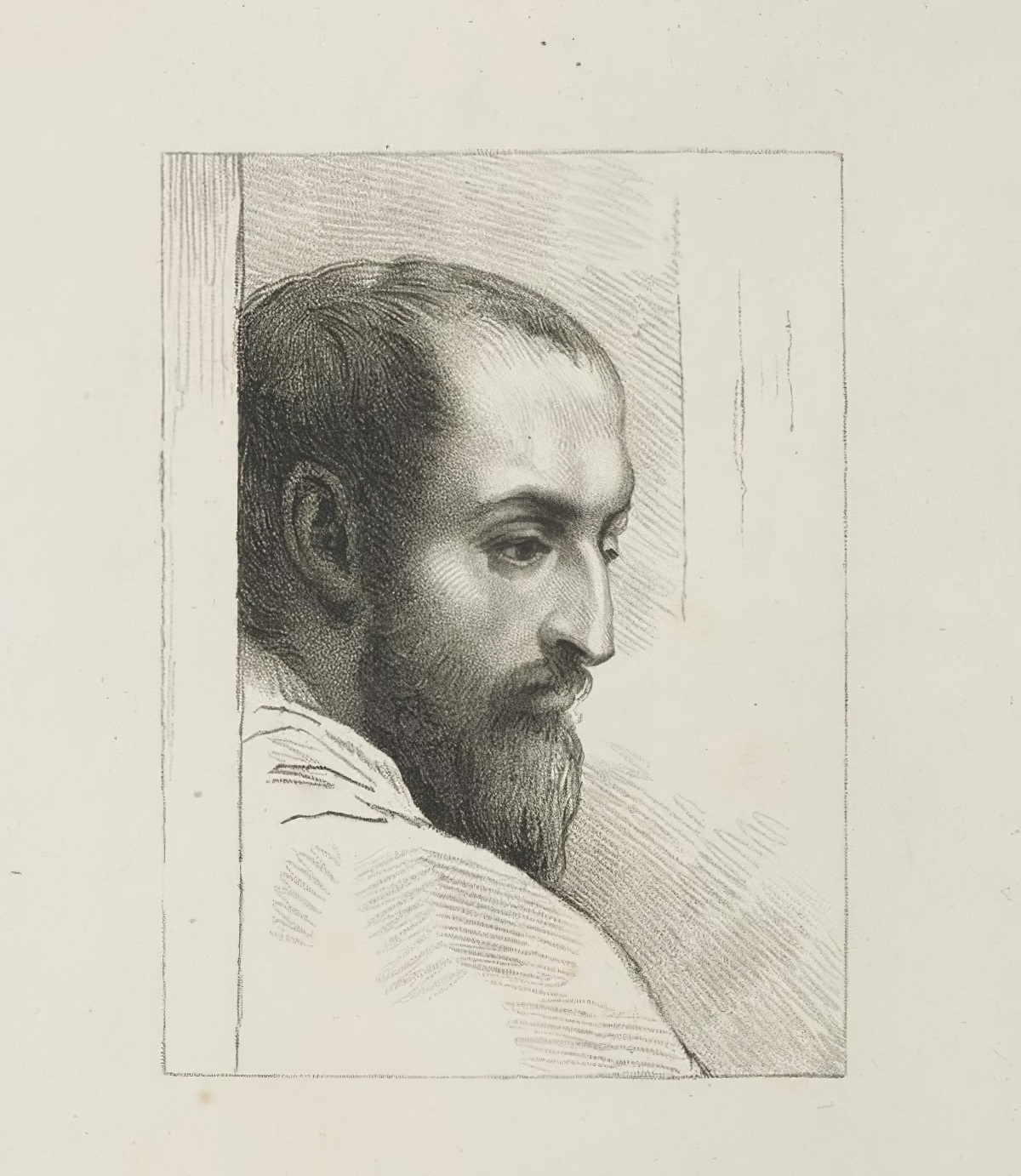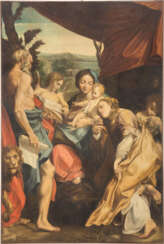
Antonio da Correggio (1489 - 1534) — 103: Art and Antiques. Sculptures. Painting.

Antonio da Correggio was a seminal figure in the Italian Renaissance, particularly renowned for his mastery in illusionistic fresco decoration. His works bridged the gap between the High Renaissance and the Baroque movement, influencing many subsequent artists in the Baroque and Rococo styles. Antonio da Correggio is celebrated for his dynamic compositions, innovative use of perspective, and the sensual nature of his paintings, which often depicted religious and mythological themes.
Antonio da Correggio's notable contributions include the frescoes in the dome of San Giovanni Evangelista and the Cathedral of Parma. His work, characterized by dramatic foreshortening and emotional intensity, represents a pioneering approach to dome decoration, creating an immersive experience for the viewer. The "Assumption of the Virgin" in Parma's Cathedral is particularly renowned for its dynamic composition and innovative perspective, offering a celestial vision filled with angels and figures in motion, heralding the artistic transitions towards the Baroque era.
Additionally, Antonio da Correggio's mythological series, such as "Jupiter and Io" and "Leda and the Swan," demonstrate his ability to blend sensuality with divine themes, presenting these narratives with a tender and intimate touch that was groundbreaking for his time.
For collectors and experts in art and antiques, Correggio's works epitomize the transition in art styles from the Renaissance to the Baroque, showcasing his unique ability to convey emotion and movement through his innovative techniques and compositions.
To delve deeper into the life and works of Antonio da Correggio, consider subscribing to updates from art institutions or platforms that specialize in Renaissance art, ensuring you stay informed about exhibitions, sales, and scholarly research related to this influential artist.

